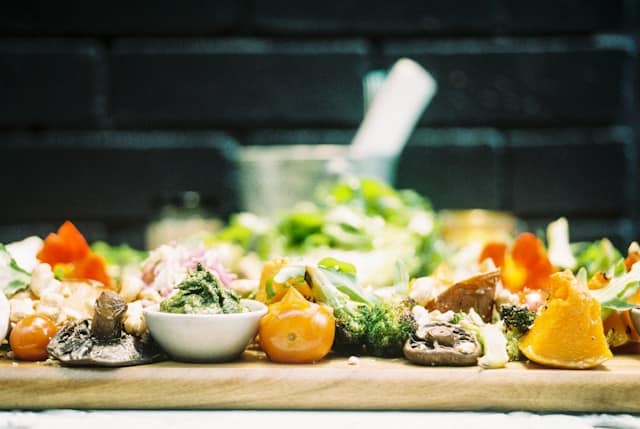In our daily lives, we often overlook the extent of our actions’ impact on the environment. One such action is the waste of food. It not only contributes to the global waste problem but also signifies a misuse of resources that went into producing that food. However, the good news is that you can make a significant difference right from your kitchen. Here we’ll share some practical and straightforward tips to help you reduce food waste in your kitchen, thereby saving money and contributing to a better world.
Understanding the Problem of Food Waste
Before we move on to the solutions, it’s essential to understand the gravity of the food waste problem. Food waste is a global issue affecting economies, societies, and the environment. In the US alone, an estimated 30-40% of the total food supply is wasted, according to the United States Department of Agriculture (USDA). This translates to approximately 133 billion pounds of food worth $161 billion.
Sujet a lire : Nutritious smoothie recipes for a healthy breakfast
It’s not just about the money spent on food that ends up in the bin. The production of food requires significant amounts of resources. Water, land, labor, energy, and other inputs are wasted when food is thrown away. Moreover, food waste that ends up in landfills decomposes without access to oxygen and produces methane, a potent greenhouse gas.
Planning Your Meals and Shopping List
A practical step to begin with is efficient planning. Taking the time to plan your meals for the week can help you avoid buying unnecessary items that will eventually end up as waste. Consider the quantity of each ingredient needed and buy accordingly.
En parallèle : Cooking with seasonal ingredients
Start by checking your pantry and fridge before heading to the grocery store. This simple action will help you avoid buying items you already have. Make a detailed shopping list and ensure you stick to it. Impulse buying often leads to food waste since these are usually items we didn’t actually need or plan to use.
Storing Food Properly
Proper food storage can extend the life of your ingredients, hence preventing waste. It’s not just about refrigerating your food; it’s about doing it correctly. Incorrect storage can lead to premature spoilage or freezing, making your food inedible.
Store fruits and vegetables in different compartments as some fruits emit natural gases that can ripen and spoil other produce. Keep your fridge at the right temperature, generally between 35°F and 38°F. Don’t overstock your fridge; cold air needs to circulate.
Practicing Portion Control
Cooking the right amount is another effective way to prevent food waste. It’s easy to overestimate the amount of food needed, especially when cooking for a family. As a result, leftovers are often thrown away.
Consider using measuring cups or a kitchen scale to get the right quantities. Smaller plates can also help in portion control. If you do end up cooking too much, don’t dump the leftovers; they can be refrigerated for another meal or used as a base for a different dish.
Composting Food Scraps
Even after implementing all these strategies, there will still be some food waste, such as vegetable peelings, coffee grounds, and eggshells. These can be composted at home, turning waste into nutrient-rich compost for your plants.
Composting not only reduces the amount of waste going to landfill but also cuts down on the production of harmful greenhouse gases. It’s an excellent way to recycle nutrients and improve your garden’s soil quality.
Donating or Sharing Excess Food
Sometimes, despite our best intentions and efforts, we may still end up with more food than we can consume. In these instances, consider donating the excess food to a local food bank or a homeless shelter. Alternatively, you can share it with neighbors, friends, or family members.
Sharing or donating food not only helps in reducing waste but also contributes to addressing the issue of food insecurity. It’s a win-win situation – you cut down your food waste and someone else gets a meal.
In conclusion, while food waste is a daunting issue, these tips can help you take control of your food waste right from your kitchen. Remember, every small step counts in the fight against food waste. Implement these tips, save money, and contribute to a healthier planet and a more sustainable future.
Using Leftovers Creatively
In our journey towards reducing food waste, one essential practice is getting creative with leftover food. Just because a meal has been served once doesn’t necessarily mean it should end up in the bin. There are plenty of ways to reincorporate leftovers into your meal plans.
For instance, leftover vegetables can be used to make a nutritious soup or stir-fry. Leftover meats can be shredded and used in sandwiches, salads, or even as pizza toppings. Day-old bread that’s starting to harden can be toasted and turned into croutons or ground to make bread crumbs.
Cooked pasta or rice can be the base for a new dish. Have you ever tried making fried rice with leftover rice from the previous day? It’s delicious. And don’t forget about omelets; they can contain a variety of leftover ingredients and still taste great.
Don’t let the term “leftovers” reduce the value of the food. With a bit of creativity, you can transform these ingredients into a whole new culinary delight.
Educating Others About Food Waste
Once you’ve adopted these food waste reduction habits in your kitchen, it’s important to share your knowledge and experiences with others. Spreading awareness about food waste and how to reduce it can have a larger community, and even global, impact.
Start by encouraging your family members to be more mindful of their food consumption and waste. Teach them the same tips you’ve learned and practiced. Discuss the importance of meal planning, proper food storage, portion control, composting, and creative use of leftovers.
Share your initiatives with your friends, neighbors, and social media followers. Demonstrate that reducing food waste is not only beneficial for the environment and the economy, but also for our wallets and our conscience. Remember, every conversation about food waste is a step towards a more sustainable future.
Conclusion
In a world grappling with pressing environmental challenges, it is easy to feel overwhelmed. However, as we’ve discussed in this article, we can all make a difference right from our own kitchens by taking concrete steps to reduce food waste.
Understanding the gravity of food waste, planning meals, shopping smartly, storing food properly, practicing portion control, composting, donating excess food, using leftovers creatively, and educating others are all feasible and effective strategies. They not only help reduce food waste but also save us money and contribute to a more sustainable planet.
So let’s start today. Let’s make every effort to waste less and value our food more. Every small step, every single effort, counts. And remember, it’s not just about reducing waste; it’s about appreciating the value of food and the resources that go into it.
By taking up this fight against food waste, we are also cultivating a better understanding of our individual roles in a larger system. We are fostering a healthier relationship with our food, our environment, and our future. Let’s make our kitchens the starting point of a more sustainable lifestyle.











